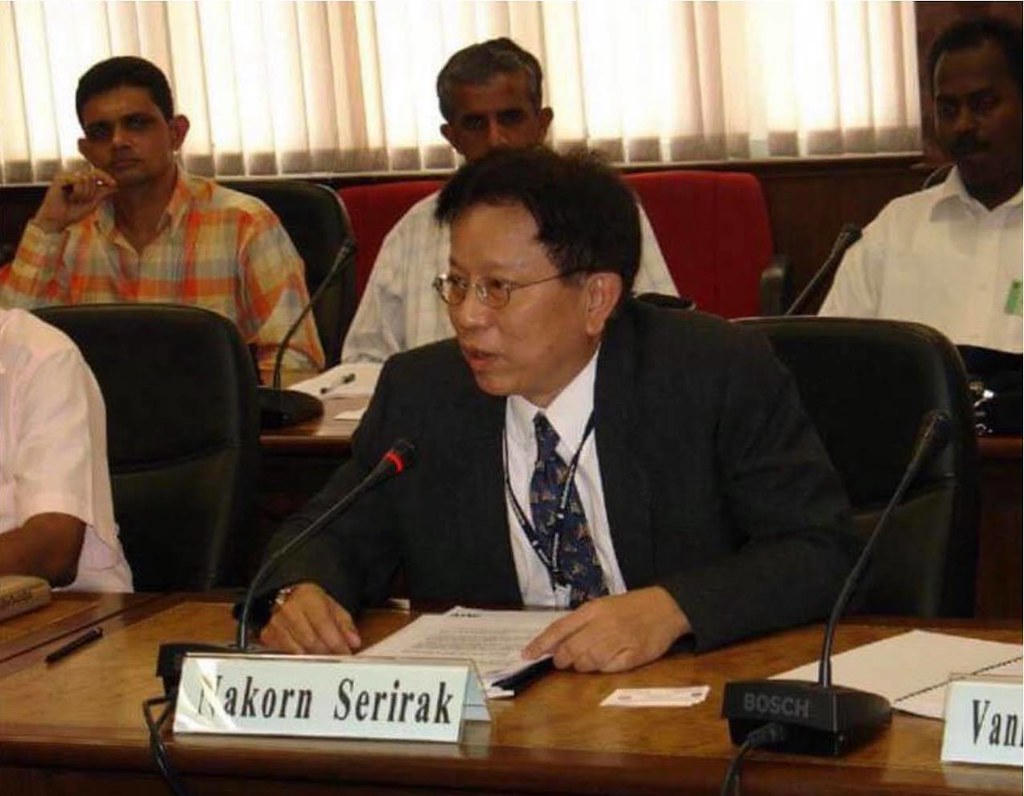The Cabinet has approved a major amendment to the 24-year-old Official Information Act. While some flaws have been fixed, there is a new, huge loophole that allows the authorities more excuse not to disclose information to the public and even criminalizes disclosure.

Pongpiphat Banchanont
Pongpiphat Banchanont, senior editor at The MATTER online media agency is known for his investigative journalism using the Official Information Act to gain information from official bodies to follow paper trails.
The veteran document-hunter says that his experience of using the Official Information Act was a series of rejections, delays and impunity for withholding information. One example was his request to the National Anti-Corruption Commission (NACC) for information on the scandal of Gen Prawit Wongsuwan’s luxury watches which was met with a blank piece of paper.

Gen Prawit Wongsuwan was caught wearing an expensive Patek Philippe watch in 2018.
When he examined the draft amendment, he said it would make it harder for him to get any information.
Wayward road toward ‘open government’
The Official Information Act B.E. 2540 (1997) was intended as the cornerstone of the people’s right to access state information. The law has changed the authorities’ attitude about treating official information in other ways than keeping it secret.
Under the current procedure, the authorities are required to make a wide range of information accessible to the public on request, including cabinet resolutions, the structure of state agencies, policies, regulations, budgets and concession contracts with private companies.
An Official Information Board was established to consider the disclosure of information together with a mechanism for appeals against the rejection of requests.
The authorities have powers to withhold or not give information that would damage the monarchy (Section 14), or that would damage national security, international relations, law enforcement or the wellbeing of a private individual (Section 15). However, this information would be archived and made accessible to the public after 75 years for information under Section 14 and 20 years for Section 15.
What in the draft amendment is causing major concern is the expansion of information that can be withheld and a maximum sentence of 10 years in prison and a 200,000 baht fine for any “individual” who discloses such information.
The draft’s Chapter 1/1, replacing Sections 14 and 15, states that information that could be used to damage the monarchy and information about royal security, cannot be disclosed (Sections 13/1 to 13/7)
Section 13/2 prohibits the publication of information about state security regarding the military, defence, terrorist prevention, international affairs related to the state security, intelligence, individual security and “other information about state security as announced by the Cabinet following recommendations of the Board.”)
Freedom of information in peril
Nakorn Serirak, a lecturer at the College of Local Administration, Khon Kaen University, a former expert on the Information Board, said he is concerned about the shrinking of freedom of information for Thais under the draft amendment. The prohibition on disclosing information in the name of “security” and “confidential” information will give government officials, who actually are not used to making information public, an excuse to withhold information.

Nakorn Serirak
Nakorn said that security issues had been interpreted in a highly military manner after the 2014 coup. The new Official Information Bill also includes punishment for those who violate the law, which will intimidate bureaucrats and others from disclosing information, resulting in worse governance.
The increased presence on the Board of military officers expert in national defence, intelligence, counter-terrorism and security-related international affairs may cause a greater information lockdown when it comes to considering appeals against non-disclosure decisions.
“The concept or philosophy of the Information Law in fact is not about official information but the principle is about Freedom of Information. It is held to be a law that ensures the people’s right to know, not regulations on securing official secrets.
“But those who designed the law just put regulations for managing official secret documents in Sections 13/2 to 13/7 which is very unusual,” said Nakorn.
Mana Nimitmongkol, Secretary-General of the Anti-Corruption Organization of Thailand (ACT), a well-known corruption watchdog, said the amendment will certainly affect their watchdog capabilities as it makes it possible for the authorities to sweep many documents, like those to do with procurement or construction project details, under the security carpet, making it impossible to check corruption in projects.

Mana Nimitmongkol
Mana, who is also a former Information Board member, said that the current draft that the cabinet has given the green light to is different from what was proposed by the Information Board in 2013-2014. Sub-committee members have criticized the draft as a “madman carrying straws” (a Thai idiom about doing many useless things), for its attempt to bring many things into the law in an attempt to limit the public’s access to information.
He said the draft must not be allowed to pass as it is.
Pongpiphat said that at least there are good things in the amendment as it provides a 30-day period for the information that is allowed to be disclosed. Therefore, he would not have to wait indefinitely as before, but with the new legal limitations and penalties, requests will most likely end with rejection.
Independence and universality are keys to best practice
Pongpiphat said there is another, more progressive Public Information Bill proposed by the Move Forward Party (MFP) in 2020. Its principle is that making information accessible is the default case; any attempt to withhold information must have a reason. It also allows people to challenge attempts to block information. The draft has passed the public hearing stage with only 5 people stating their opinions, and is waiting for parliamentary debate.

A protester with a big sign stating "Bored of Prayuth. Stop 2017 Constitution" while walking past a military camp entrance.
Nakorn believes that the mechanisms under the existing law still function. However, the problem that must be solved is the status of the Information Board that is currently run by the Prime Minister’s Office with some members appointed by the Cabinet. This results in the Board being used to protect the establishment instead of benefiting the people.
“Ideally, the one to enforce this [Official Information] law should be an independent organization like the Election Commission (EC) or National Anti-Corruption Commission. I think it must be taken out of the PM’s office. If it cannot be made independent like the EC or NACC, it must be put under the oversight of the National Human Rights Commission, which is not a government organization, or under the Office of the Ombudsman.
“A third model I proposed was for it to be overseen by Parliament. At least it would be linked to the representatives of the people. That is better than being an organization under the Prime Minister,” said Nakorn knowing how independent organizations work in Thailand. However, he still believes that it is better for the Board than working under the government.
Mana said the 24-year implementation of the Official Information Act has established and developed state databases and archive systems like the Electronic Monitoring and Evaluation System of National Strategy and Country Reform (EMENSCR) or the Government Fiscal Management Information System (GFMIS), which are all available online. The policy from the new generation of executives is also showing positive signs toward more open digitized information. But with the upcoming amendment, he is worried that this policy will not be supported by the law.
The ACT Secretary-General said the Official Information Act should restrict exceptions to disclosure based on universal standards, not rubber-stamp anything as “confidential” that the authorities choose.
Prachatai English is an independent, non-profit news outlet committed to covering underreported issues in Thailand, especially about democratization and human rights, despite pressure from the authorities. Your support will ensure that we stay a professional media source and be able to meet the challenges and deliver in-depth reporting.
• Simple steps to support Prachatai English
1. Bank transfer to account “โครงการหนังสือพิมพ์อินเทอร์เน็ต ประชาไท” or “Prachatai Online Newspaper” 091-0-21689-4, Krungthai Bank
2. Or, Transfer money via Paypal, to e-mail address: [email protected], please leave a comment on the transaction as “For Prachatai English”
